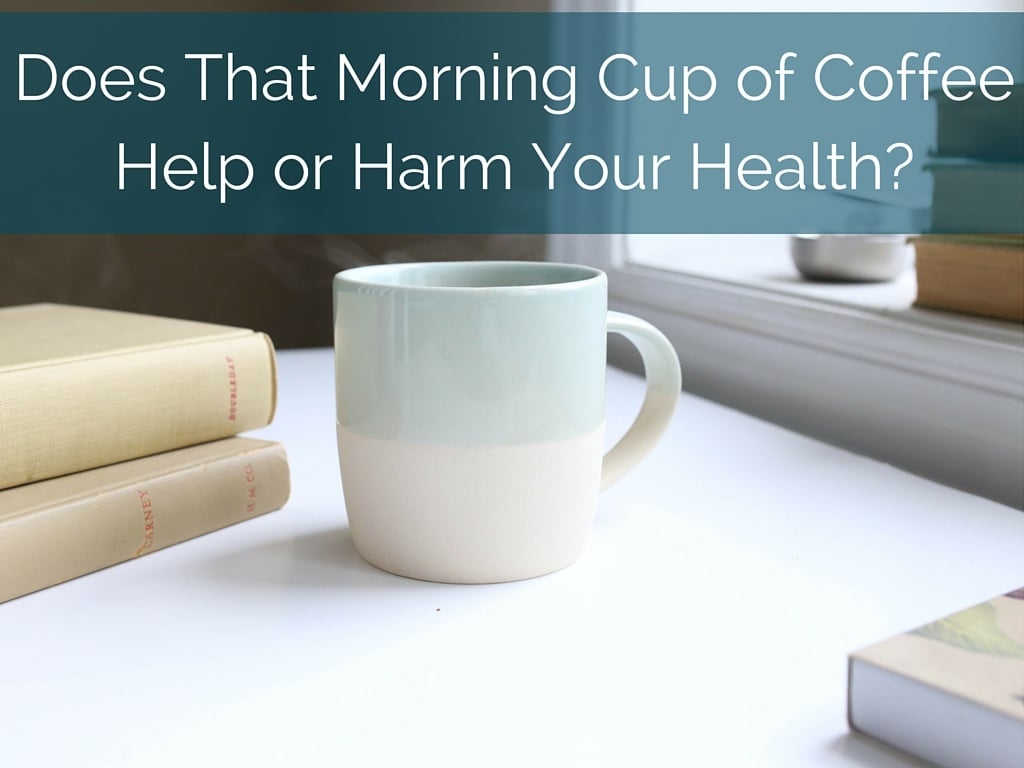
Coffee has long been one of the most popular drinks in the United States. According to the National Coffee Association (NCA), 59 percent of Americans drink coffee daily and 71 percent drink it at least once a week. Among seniors, coffee consumption remains steady as well. When you’re trying to live a healthier, more active lifestyle, you need to look at how every day habits, even those as simple as a morning cup of coffee, can impact your health.
Coffee and Basic Caffeine Effects
An eight ounce cup of coffee without any added flavoring, sweetener or creamer contains only five calories, zero fat, zero sugar, zero cholesterol and 62 milligrams of caffeine. But what exactly is caffeine and how does it impact your health?
Caffeine naturally occurs in more than 60 plants, including the coffee bean. It's a stimulant that affects the central nervous system when consumed. Your central nervous system includes the brain, which is why it's common to feel more alert/awake after drinking coffee. After drinking coffee or consuming any type of caffeine you also may have increased reaction times and improved mental acuity. However, it can cause negative side effects such as jitters, difficulty sleeping and upset stomach as caffeine increases stomach acid, which can contribute to heartburn.
Positive Effects of Coffee Consumption
Many different studies have shown that drinking caffeinated coffee every day has several positive health effects for adults of all ages, but coffee can be particularly beneficial in a number of different ways for seniors:
- Improved gait: Senior adults who drink coffee typically have steadier movement than senior adults who don't drink coffee which decreases the risk for falls and other injuries.
- Decreased risk for type 2 diabetes: The ingredients in coffee have the potential to decrease blood sugar levels in adults who drink four or more cups of coffee daily.
- Decreased cancer risk: Coffee drinkers may reduce their risk for certain cancers due to the coffee's antioxidants that help protect against cell damage from free radicals.
- Reduced risk of Parkinson's disease: One study found that men who abstained from coffee were two to three times more likely to develop Parkinson's than men who drank at least one cup of caffeinated coffee daily.
- Reduced risk for Alzheimer's disease: Moderate caffeinated coffee consumption may lead to a reduced risk for Alzheimer's.
Negative Effects of Coffee Consumption
While there are many benefits to be had from drinking coffee, the caffeine in coffee does pose several long-term negative effects. When deciding whether or not to indulge in that morning cup, consider both the positive and negative effects of daily coffee consumption. These include:
- Bone loss: Caffeine is a natural diuretic. It won't hydrate you as well as water or juice and can lead to increased frequency of urination. Increased urination can lead to calcium loss which directly effects bone density, especially in senior women.
- Increased cholesterol: While coffee doesn't contain cholesterol, it does have cafestol and kahweol, substances that can increase cholesterol levels. Fortunately, paper coffee filters remove these substances from the coffee. But, if you favor espresso, latte or other un-filtered coffee drinks, you're consuming cafestol and kahweol.
- Blood pressure increase: The caffeine in coffee can increase stress hormones, which effects blood pressure. For long-term coffee drinkers, a tolerance is often built and these effects can transition into a non-issue. However, it's best to let your doctor know how many cups of coffee you consume daily if you suffer from high blood pressure.
Senior health care is composed of many important and diverse components—from physical activity to disease treatment to diet. When you’re trying to live a healthier life, it is important to consider both the short and long-term effects of your current lifestyle, including how frequently you drink caffeinated beverages. Does that cup of morning coffee hurt or help your overall health? It really depends on many factors, and, as with so many health decisions, it's always best to consult with your personal physician.












